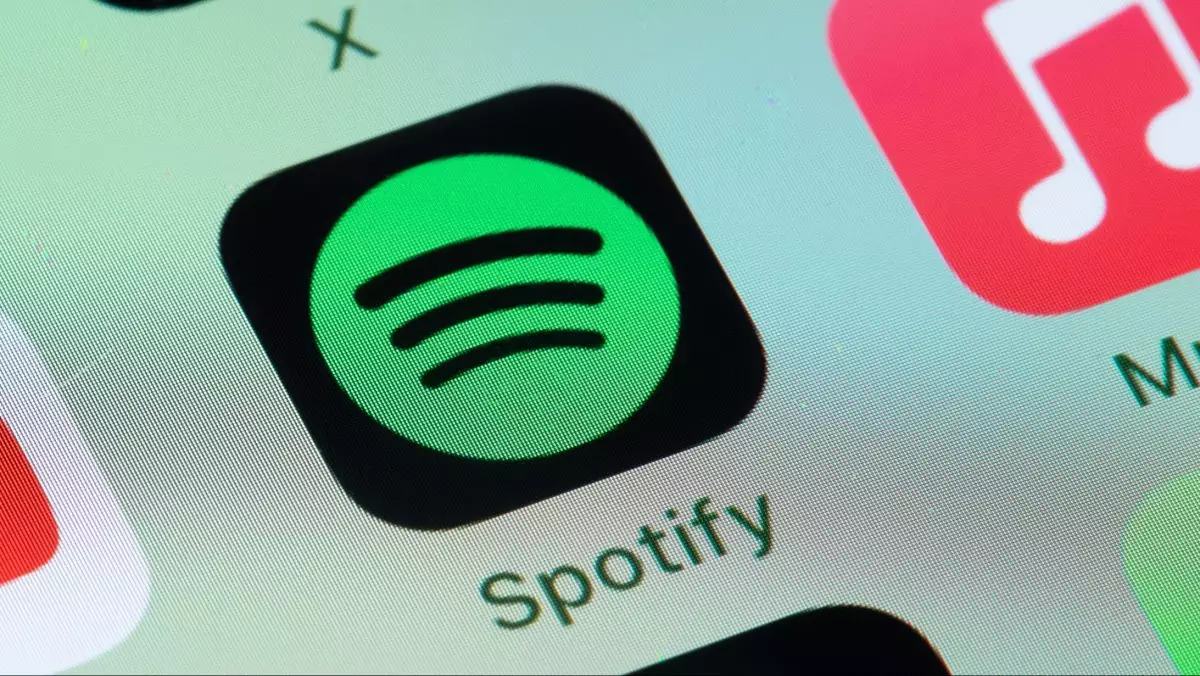In a landmark development this week, Spotify announced that Apple has granted approval for a significant update to its U.S. app. This update, which allows Spotify to showcase pricing information and external payment links, marks a pivotal moment for both consumers and developers. Following a federal court ruling that ordered Apple to cease charging commissions on in-app purchases, the announcement reflects a shift towards greater transparency in the app economy.
The approval signals more than just a mere technical upgrade; it embodies a larger movement toward ensuring competition and consumer choice in a market that has long been dominated by monolithic entities. Spotify’s spokesperson, Jeanna Moran, articulated this sentiment by proclaiming it a “victory for consumers, artists, creators, and authors.” After years of restrictive policies, Spotify’s ability to inform users about pricing and subscriptions directly within the app represents a crucial advancement in the digital marketplace.
Shifting the Paradigm in In-App Purchases
With the rollout of version 9.0.40 of the Spotify app, users will finally have access to clear and direct pricing options, including links to purchase subscriptions without incurring Apple’s hefty 30 percent service fee. This is a transformative moment for digital services that rely heavily on app stores for distribution and revenue generation. The capacity for Spotify to advertise various subscription options directly within the app allows them to engage more effectively with consumers, as it promotes competition among services.
Furthermore, this change will empower users to make informed decisions about their subscriptions, consequently enhancing their experience. The ability to notify users of promotional offers in-app is another strategic move on Spotify’s part to increase user acquisition and retention while leveling the playing field against robust competitors.
Apple’s Position: Compliance or Resistance?
Despite Apple’s recent compliance with the court’s ruling, it is essential to recognize that the tech giant has expressed strong dissent regarding the court’s decision. Apple’s planned appeal indicates an ongoing resistance to fundamentally restructuring its app store policies, suggesting that while temporary adjustments are being made, the battle over app store dominance is far from over.
Judge Yvonne Gonzalez Rogers’ ruling encapsulates the judiciary’s growing scrutiny of big tech companies and their monopolistic practices. Apple’s history of imposing order on its ecosystem through stringent guidelines has drawn criticism and legal backlash, and now it seems the terrain is shifting under its feet. The implications of these changes could resonate beyond Spotify, as other developers will likely seek to leverage this newfound openness.
The Future of Digital Marketplace Dynamics
As we observe this transformative shift, one cannot help but ponder the broader implications it holds for the entire digital landscape. The victory for Spotify represents not just an evolution in its own business model but could ignite a domino effect among other app developers clamoring for similar liberating changes. This scenario could lead to a re-evaluation of how app stores operate, fostering a more competitive environment that puts the consumer first.
The excitement surrounding this news isn’t merely about financial implications; it’s a cultural shift towards entrepreneurship and innovation, encouraging developers to create and market their services without the heavy burdens imposed by established giants. The message is clear: the digital space is entering a new era, and the balance of power is subtly yet irrevocably shifting. As consumers, we should brace ourselves for a more dynamic and engaging marketplace that prioritizes our choices and experiences.

